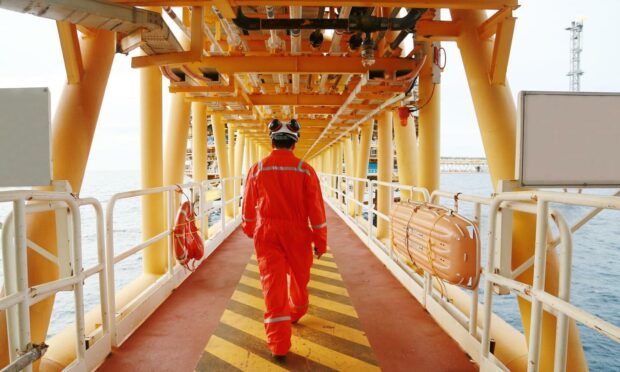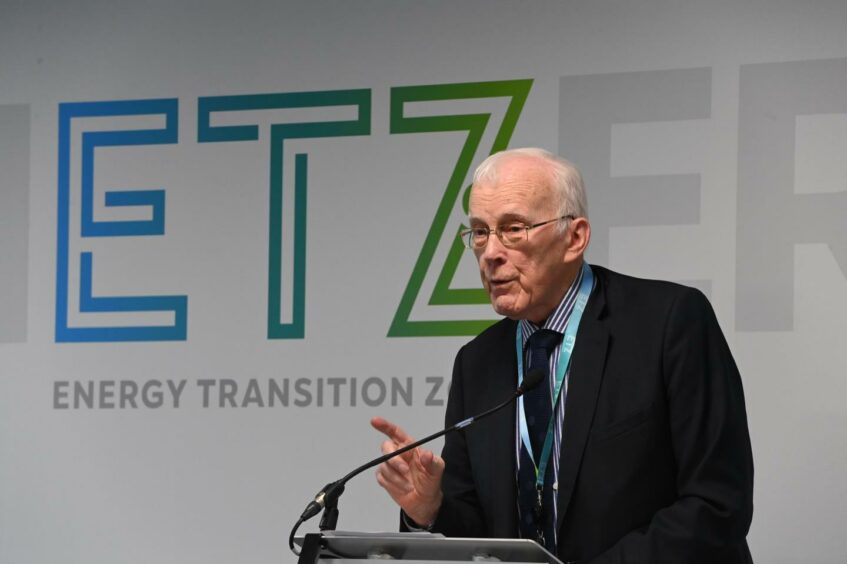What should the future hold for Scotland’s oil and gas industry?
That is the key question at the centre of a fight for the soul of the north-east that has seen the three largest parties throw almost everything they have at voters.
Industry figures warn the UK is on a knife-edge and the wrong move could have disastrous consequences for decades.
At the heart of the debate is a row over how quickly to transition from polluting fossil fuels to new climate-friendly technologies – and how to do so without abandoning a generation of workers.
The fierce political contest playing out on the east coast, and putting some big political jobs at risk, is the frontline of a wider ideological battle to decide the future of the UK’s energy strategy.
But those close to the industry fear they will be left behind after the political football of the election is over.
Situation is a ‘mess’
Jake Molloy, who stepped down as regional organiser of the offshore workers’ RMT union last month, described the situation as a mess.
Before becoming a trade union official, he spent 17 years working in the sector.
Mr Molloy said: “The entire energy system has become little more than a political football and the people that will ultimately suffer are the workers caught in the middle and their communities.
“If we’re not careful, we are going to play out the whole miners and steel workers situation all over again.
“For me, the UK is on a knife-edge right now and if we don’t so something constructive and meaningful very soon then we risk losing out big time.”
Oil and gas production alone added more than £20 billion to the UK economy last year and the offshore energy industry provides over 200,000 jobs – nearly 80,000 of which are based in Scotland.
Workforce numbers could plunge by 2030
Entrepreneur Sir Ian Wood, chairman of economic development agency ETZ Ltd and one of the most influential figures in the industry, said it makes “absolutely no sense whatsoever” to prematurely end oil and gas exploration just to rely on foreign imports.
He said: “Quite clearly we have a strong platform for success but in order to maintain a competitive natural advantage there are still challenges to overcome if we are to turn the potential into an energy and economic reality.
“A general election is looming large and it is imperative our politicians, across all parties, act to accelerate transition whilst protecting the very sector that gives us our competitive advantage in maintaining our position as global energy leaders.”
The Energy Transition Institute at Robert Gordon University has warned the Scottish-based offshore energy workforce could plunge by around 40% by 2030.
That is why Labour leader Sir Keir Starmer put a new state-owned GB Energy front and centre of his pitch to Scottish voters.
But there is uncertainty over how the investment company would work and concerns over the impact of the windfall tax on energy giants required to get it started.
“All eyes are on the North East right now.”
Scottish Tory insider
Labour says it would use the cash to spark radical investment in the renewables sector.
Its rivals say it wants to use revenues from Scotland’s offshore industries to fund new nuclear schemes in England.
Sir Keir also faces a revolt from union leaders over his refusal to row back on a bid to ban new fossil fuel project licences.
SNP accused of playing both sides
The SNP points to expert analysts’ claims that Labour’s plans risk the loss of 100,000 North Sea jobs.
But the nationalists are accused of trying to play both sides after signalling they could soften their previous stance on fossil fuels.
The SNP’s energy chief Mairi McAllan called Sir Keir’s proposed ban “too extreme” – despite her government setting out its own presumption against exploration in a draft energy strategy in January last year.
It represents a significant change in the party’s attitudes, partly influenced by North East-based SNP Westminster leader Stephen Flynn.
A 10-point national lead for Labour over the SNP in a recent poll by Redfield & Wilton Strategies has put Aberdeen South – the constituency he hopes to hold – firmly in the spotlight.
A resulting shift in focus saw Labour’s Shadow Scottish Secretary Ian Murray make a two-day visit to Aberdeen this week to meet energy leaders and workers.
However, Sir Keir still refuses to say whether GB Energy will be headquartered in Aberdeen – the preference of many in the industry.
That could speak to a lack of Labour support in the region, where the SNP and the Tories are keen to portray much of the north-east as a two-horse race between them.
The Conservatives see the region as a stronghold, in part because of support for offshore exploration, but polls predict a generational collapse under Rishi Sunak.
Douglas Ross enters tight race
The regional race was given a fresh twist this week when Scottish Conservative leader Douglas Ross announced he will run in Aberdeenshire North and Moray East in place of hospitalised former MP David Duguid.
Tories are publicly confident Mr Ross will win the seat, along with Harriet Cross in Gordon and Buchan, and Andrew Bowie in West Aberdeenshire and Kincardine.
But privately, party sources say a strong showing for Nigel Farage’s Reform party could be enough to split the vote and help the SNP win.
Asked whether the North East is now their main focus at this election, one Scottish Tory insider said: “Yes, absolutely. All eyes are on the North East right now.”
Whatever way it goes, the race for seats across the region is expected to be close.
The decision of voters on July 4 could shape the UK’s energy future for decades to come.
Read more:




Conversation